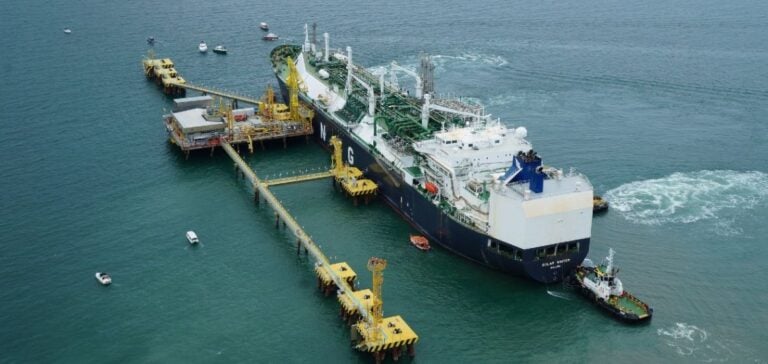Liquefied natural gas (LNG) prices in Europe are rising significantly, as a direct consequence of growing concerns about winter supply.
This situation is disrupting traditional flows to Asia, where demand remains high.
Rising prices in Europe are fuelled by geopolitical tensions, particularly in the Middle East and Ukraine, as well as operational risks linked to unplanned maintenance at several critical facilities, including Bintulu in Malaysia and Freeport in the USA. The arbitrage of LNG cargoes to Asia, traditionally more profitable, is becoming increasingly complex as the price differential between Europe and Asia narrows.
Exporters must now weigh the risks of selling to Europe, where prices are high, against those of shipping to Asia, where demand remains strong but the financial advantage is diminishing.
Impact of geopolitical tensions and operations
Current geopolitical tensions, particularly those between Israel and Iran, as well as the continuing conflict in Ukraine, add a further layer of uncertainty to the European LNG market.
Any escalation in these areas could directly affect supply infrastructures, leading to increased price volatility.
At the same time, unplanned maintenance at key facilities, notably in Norway, has heightened fears of supply shortages over the winter.
This situation is prompting operators to prioritize the security of European supplies, even if demand remains moderate, due in particular to robust renewable energy production and high levels of gas storage.
Asian demand remains strong despite challenges
In Asia, demand for LNG continues to grow, attracting cargoes despite the increasing attractiveness of European prices.
In July 2024, 43% of U.S. LNG exports went to Asia, an increase on the previous year.
This trend is part of a dynamic in which Asia is becoming a priority market for LNG exporters, despite more difficult market conditions.
The market is keeping a close eye on geopolitical tensions and maintenance operations, as any change could upset the current balance.
Operators must therefore remain vigilant and flexible in their arbitrage strategy to maximize profits while minimizing the risks associated with market fluctuations.





















